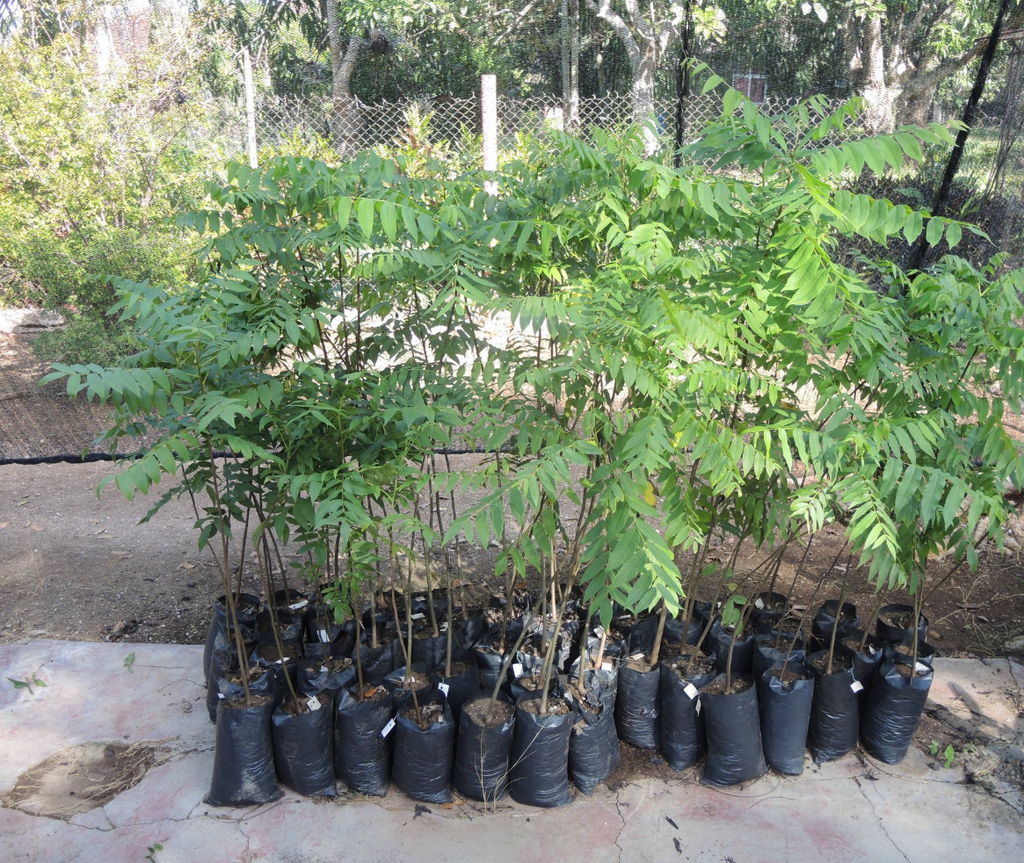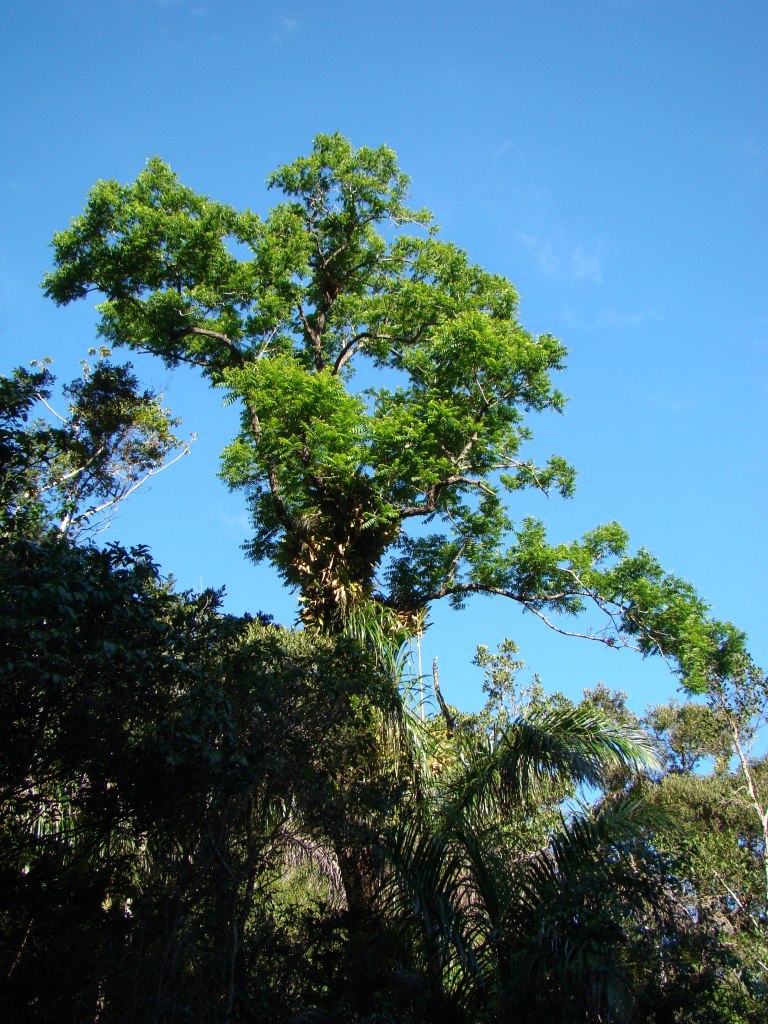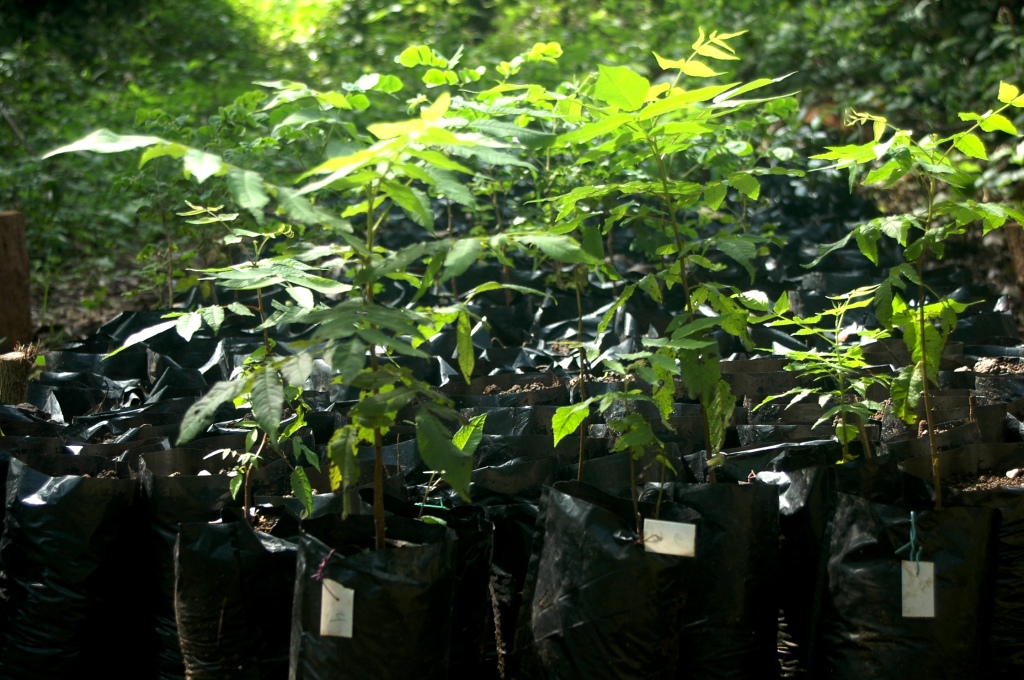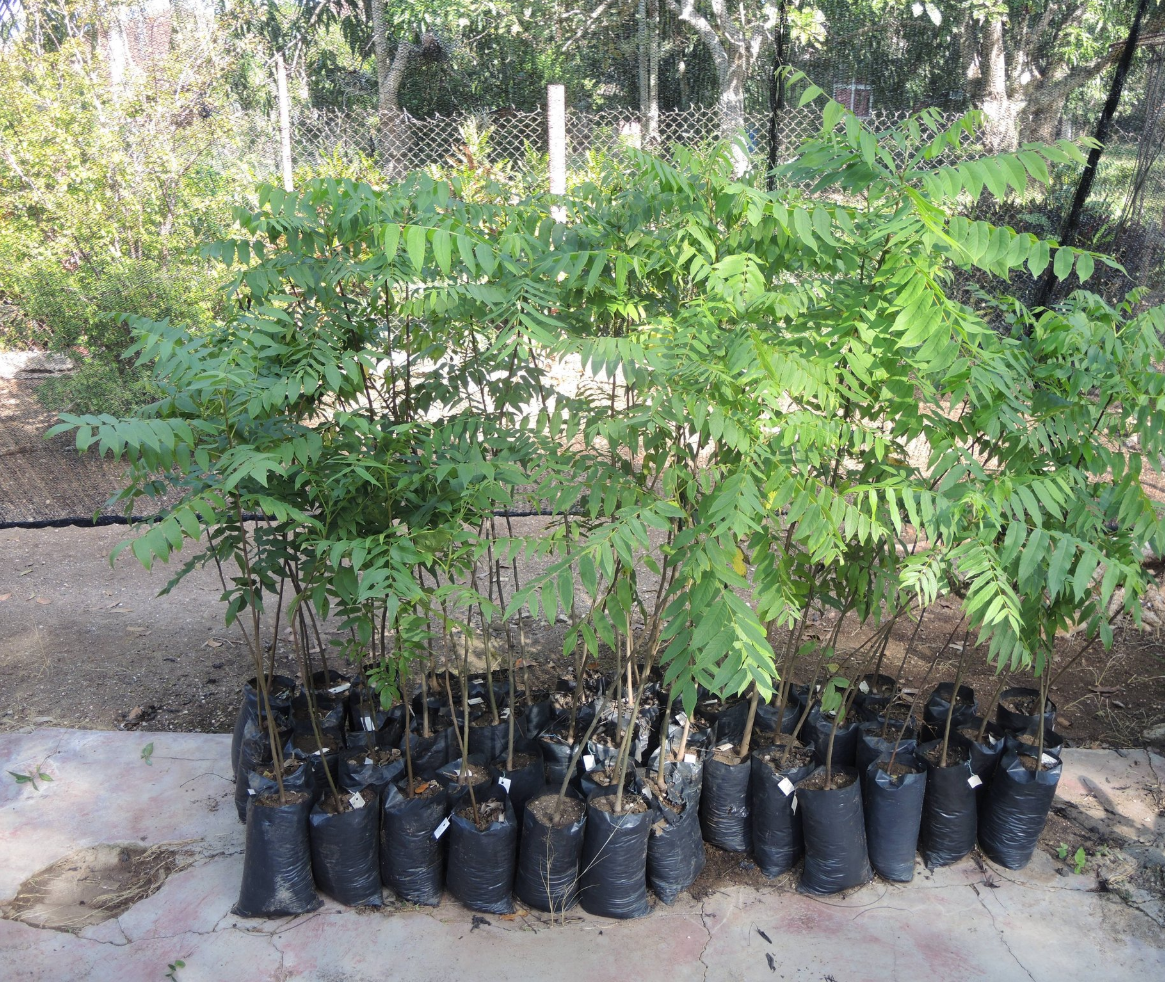Preserving Cuba’s native walnut

-
Status of project
Completed -
Region
Latin America and the Caribbean -
Country
Cuba -
Programme
Global Trees Campaign -
Workstream
Saving Plants -
Topic
Tree Conservation
Project completed: 2018
Conservation problem
The West Indian Walnut tree (Juglans jamaicensis) is found within a restricted range in Cuba and is threatened on the island by timber extraction, forest fires and overall land conversion.
Project goal
Detailed range information about Juglans jamaicensis in Cuba informs conservation actions urgently needed, including cultivating a reservoir of the species in Cuban botanic gardens, and working with farmers to cultivate the tree on their land, such as in coffee plantations, thereby also diversifying the overall species composition.

Why this species?
Cuba is host to one of the richest island floras in the world, supporting 7,500 species of flowering plants. Over 50% of the plant species are endemic to the island. The West Indian Walnut is a particularly charismatic tall tree, growing within central and western parts of the island, and has major potential to serve as a national tree emblem of Cuba’s botanical wealth. The species is reported also to be native to other islands of the Greater Antilles (Cayman Islands, Dominican Republic, Haiti, Jamaica and Puerto Rico), however accurate information about the species’ distributional range in these is not yet available.
The West Indian Walnut is highly valued for its timber in carpentry, whilst the leaves and fruits are useful for medicinal, cosmetic and nutritional purposes. However, commercial forestry, intensive agriculture and growing infrastructure development are changing the natural habitat and threatening the island’s native plant diversity, including this mighty tree. As a result of these threats, the species has suffered significant population losses and is recorded as Critically Endangered in The Red List of the Cuban Vascular Flora (2005).
Juglans jamaicensis requires urgent conservation action in Cuba to bring the species into cultivation and conservation collections at Cuban botanic gardens as an immediate insurance policy against the species’ extinction in the wild, while reinforcement planting in situ will contribute to stabilising and enhancing natural populations in the long run.
What are we doing?
Since 2016, we have partnered with the botanic garden in Cienfuegos, Jardín Botánico de Cienfuegos (JBC) in central Cuba, to carry out field inventories and develop and implement integrated ex and in situ conservation actions for Juglans jamaicensis.
These efforts include:
- Conducting field surveys to assess current population status, size and distribution.
- Collecting seeds from wild populations to create conservation collections at JBC and other Cuban botanic gardens.
- Engaging local farmers in the survey work and providing training on propagation and cultivation techniques to grow the species in coffee and other plantations.
You can see these efforts in action by watching this project video!

Key achievements
Field surveys carried out in 2016 and 2017 have confirmed the existence of four locations with Juglans jamaicensis in central Cuba (Cienfuegos, Villa Clara and Sancti Spiritus provinces). Consultations with local farmers in Viñales, Pinar del Rio, have also indicated the existence of a further location in western Cuba, which will be subject to future field scoping work.
Since 2016, several hundreds of seeds have been collected from the locations in central Cuba. As they have a limited storage life, living plants have been generated immediately following collection, providing saplings for diversifying coffee and other plantations. To date, some hundred saplings continue to grow on the land of 15 local farmers. In parallel with these practical interventions, a series of educational and public outreach activities have been undertaken, involving local schools and national mass media to further promote the conservation need and value of this magnificent tree.

Contact details
For more information on this project, please contact globaltrees@bgci.org